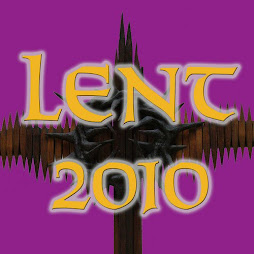 Our First Reading for today’s Mass is from the Prophet Joel. Some insights:
Our First Reading for today’s Mass is from the Prophet Joel. Some insights:Which trumpet shall we blow for Lent? Joel 2:1 begins with the words, "Blow the trumpet in Zion; sound the alarm on my holy mountain!" The sound of that trumpet, known as the shofar, historically signaled danger or war. By verse 15, this same trumpet had been transformed into an instrument that would be used to call the people to fasting, repentance, and prayer. "Blow the trumpet in Zion; proclaim a fast; call an assembly." We continually hear sounds that warn of danger and other sounds that call us to war. We even hear an occasional sound that suggests that we should all just ignore what we see around us and go about our way. What kind of trumpet will the church blow for Lent this year?
Rend your hearts and not your garments. Joel called Israel to observe more than ritual in their time of mourning and repentance. He called them to personal reflection, confession, and change. We need the season of Lent each year to move us from head to heart, from shadow to substance, and from ritual to reality in our faith.
God is good all the time. Joel reminded the people that it was God's good nature that would bring about change in their lives and in their community. He told them that change was possible because God is good. If this is true, then why the ashes and other works of piety for us? The answer is simple: we need them! The commitment to observing a season of reflection and sacrifice is one way we call ourselves back into alignment with the promises made at our baptism -- to be the people of God and the body of Christ.
Our Gospel today is from Matthew:
For your eyes only. The Pharisees were guilty of attempting to impress others with their excessive acts of piety. They called attention to their offerings, prayed on the street corners at the hour appointed for prayer, and feigned suffering on their fast days.
By contrast, Jesus calls us to practice forms of piety that are reserved for God's eyes only. Why? While corporate/community prayer is an important part of worship, individual prayer is private conversation with God. When and how a person observes a fast is between the individual and God. Who is able to value or evaluate your Lenten observance? That honor is reserved for God, who knows the secrets of each heart, appreciates the value of each sacrifice you make, and treasures even your brief hurried prayers.
What’s the reason for ashes on Ash Wednesday?
As you know, Jesus retreated into the wilderness and fasted for forty days to prepare for his ministry. It was for Him a time of contemplation, reflection, and preparation. By observing Lent, most Christians join Jesus on His retreat.
Lent consists of the forty days before Easter. In the western Church, we skip over the Sundays when we count the days of Lent, because Sunday is always the joyful celebration of the Resurrection. Therefore, the first day of Lent in the western Church is always a Wednesday.
Biblical societies relied very heavily on wood fires for heating and cooking, which meant that keeping ashes under control was a major housekeeping task. Then as now, if a person was preoccupied with something serious, they didn’t always tend to the housekeeping—it’s the least of their concerns. Imagine that there is a death in the family. A friend stopping by to pay their respects might gently say, “Did you know you have ashes on your face?”
So ashes became a sign of remorse, repentance, and mourning.
You can find biblical examples of this in 2 Samuel 13:19, Esther 4:1-3, Job 42:6, and Jeremiah 6:26. During Lent, ancient Christians mourned their sins and repented of them, so it was appropriate for them to show their sincerity by having ashes on their foreheads. The custom has persisted in the Church as secular society has changed around us.
It is most appropriate on Ash Wednesday, when we begin a period of sober reflection, self-examination, and spiritual redirection.
Traditionally, the ashes for the Ash Wednesday service come from burning the palm fronds from the previous year’s Palm Sunday celebration. I did that again this year!
Some people only celebrate the happy times in Jesus’ life: Palm Sunday, Easter Sunday, and Christmas. But I think as true friends, we should also watch and pray with Him, stand by Him in the desert, retreat with Him into the wilderness during Lent.
The Towers of Trebizond by Rose Macaulay, the central character puts it this way:
‘I do not really want to be saved from my sins, not for the time being, it would make things too difficult and too sad. I am getting to a stage when I am not quite sure what sin is, I’m in a kind of fog, drifting about without clues, and this is liable to happen when you go on and on doing something, it makes a confused sort of twilight in which everything is blurred, and the next thing you know you may be stealing or anything, because right and wrong have become things you do not look at, you are afraid to, and it seems better to live in a blur. Then come the times when you suddenly wake up, and the fog breaks, and right and wrong loom up through it, sharp and clear like peaks of rock, and you are on the wrong peak and know that, unless you can manage to leave it now, you may be marooned there for life and ever hereafter.’
The question that confronts us on Ash Wednesday is whether we have what it takes to journey, both as individuals and collectively as communities of faith, into the ‘whole knowledge’ that Good Friday confronts us with. Clement of Alexandria says, ‘We may not be taken up and transported to our journey’s end, but must travel thither on foot, traversing the whole distance of the narrow way.’
‘Yet even now’, says the Lord, ‘rend your hearts, return to me with all your heart.’ (Joel 2:12). From the ashes of last year’s palm cross, the ashes of our heartbreak and defeat, our unmet expectations and broken dreams, the ashes of our knowledge that we fall short - from the ashes God’s voice calls us to turn, and travel the painful journey to the cross. We do not travel alone; we travel with Jesus who has what it takes to enter into truth. He teaches us his secret, namely, you cannot enter into truth except through love (Non intratur in veritatem nisi per caritatem). That is the key. That is why we dare to follow Jesus as H sets Hs face like flint and sets out on the road to Jerusalem. And that is how, when we arrive at Good Friday, we find the courage to face Jesus on the cross without running away.



























